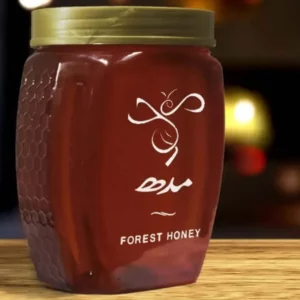In a world that’s rapidly evolving, there’s a timeless treasure nestled within our forests – honey, the golden nectar that hums with the secrets of nature. But have you ever wondered about the intricate dance between beekeeping and the preserving forest honey? Join us on a journey to unveil the vital role that beekeeping plays in safeguarding the legacy of forest honey.
Table of Contents
- Introduction: The Sweet Symphony of Nature
- The Essence of Forest Honey
- The Symbiotic Dance: Bees and Forests
- Beekeeping: A Time-Honored Tradition
- Harmony with Nature
- Guardians of the Hive
- Cultivating Forest Honey
- The Environmental Impact of Beekeeping
- Conservation and Sustainability
- Nurturing Biodiversity Through Beekeeping
- The Future of Forest Honey: Beekeeping’s Legacy
- The Honey-Human Connection: A Win-Win Scenario
- Conclusion: Sustaining Nature’s Sweet Harmony
Introduction: The Sweet Symphony of Nature
As sunlight filters through the lush canopy of trees, a delicate dance unfolds. Bees flit from blossom to blossom, collecting nature’s essence and transforming it into liquid gold – forest honey. Yet, beyond this enchanting spectacle lies a story of collaboration, one where beekeeping and the preservation of forest honey intertwine in an intricate tapestry.
The Essence of Forest Honey
Forest honey, as its name suggests, is a product of the forest’s embrace. Bees traverse a diverse palette of wildflowers and trees, gathering nectar that captures the very essence of the woods. This unique fusion of flavors gives forest honey its distinct taste and therapeutic properties.
The Symbiotic Dance: Bees and Forests
At the heart of this narrative are bees, nature’s most diligent artisans. These pollinators not only create the sweet ambrosia we savor but also play a pivotal role in maintaining forest ecosystems. As they flit from bloom to bloom, they facilitate cross-pollination, ensuring the propagation of plant species that are vital for forest vitality.
Beekeeping: A Time-Honored Tradition
Harmony with Nature
Beekeeping, often referred to as apiculture, is a harmonious partnership between humans and bees. It involves the art of providing bees with suitable habitats and care, allowing them to thrive while contributing to human needs.
Guardians of the Hive
Beekeepers, often unsung heroes of the natural world, tend to the needs of their hives with dedication. Their stewardship ensures that the delicate balance of the ecosystem remains intact, supporting both bee populations and the biodiversity of forests.
Cultivating Forest Honey
Through meticulous care and understanding, beekeepers nurture honeybee colonies in forested areas. This approach allows bees to forage naturally, collecting nectar from a diverse array of plant species that enrich the flavor and benefits of forest honey.
The Environmental Impact of Beekeeping
Beekeeping is a key contributor to ecological harmony. The presence of managed honeybee colonies enhances the pollination of wildflowers, fruits, and vegetables, fostering a thriving ecosystem that extends beyond the hives.
Conservation and Sustainability
By engaging in responsible beekeeping practices, beekeepers contribute to the conservation of forests. Their efforts help maintain the delicate balance between pollinators and the flora they rely on, safeguarding the habitats of countless other species.
Nurturing Biodiversity Through Beekeeping
Beekeeping not only ensures the survival of honeybee populations but also encourages the proliferation of other pollinators. This synergy amplifies biodiversity, benefiting plants, animals, and humans alike.
The Future of Forest Honey: Beekeeping’s Legacy
In a world challenged by environmental changes, beekeeping emerges as a beacon of hope. The legacy it creates extends beyond honey; it nurtures ecosystems, empowers communities, and fosters a deeper appreciation for the intricate dance between bees and forests.
The Honey-Human Connection: A Win-Win Scenario
The role of beekeeping in preserving forest honey is a testament to the symbiotic relationship between humans and nature. As we protect the homes of bees, they reciprocate by enriching our lives with the gift of forest honey – a truly win-win scenario.
Conclusion: Sustaining Nature’s Sweet Harmony
The delicate hum of bees resonates through the forest, weaving a symphony of life. Beekeeping, an ancient practice, is now more crucial than ever in safeguarding the future of forest honey. By nurturing these diligent pollinators and the enchanting forests they call home, we ensure the continuation of a sweet legacy that transcends time.
Unique FAQs
- Can anyone become a beekeeper?
Becoming a beekeeper requires dedication and learning. It’s a fulfilling hobby or profession for those who are passionate about nature and its delicate balance. - How does beekeeping promote conservation?
Beekeepers actively contribute to pollinator conservation by providing safe habitats and promoting plant diversity, thereby enhancing the overall health of ecosystems. - Is forest honey different from other types of honey?
Yes, forest honey derives its unique flavor and properties from the diverse range of plant sources within forested areas. - What challenges do beekeepers face?
Beekeepers navigate challenges such as colony health management, pest control, and environmental changes that impact bee populations. - How can individuals support beekeeping efforts?
Supporting local beekeepers, creating pollinator-friendly gardens, and advocating for sustainable agricultural practices are meaningful ways to contribute to beekeeping and forest honey preservation.


